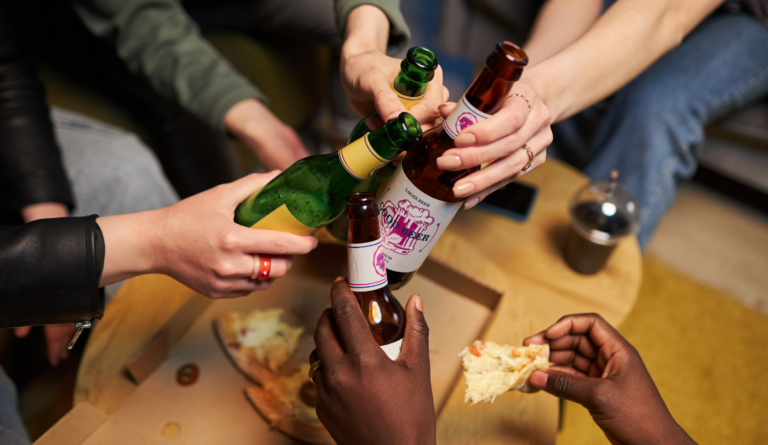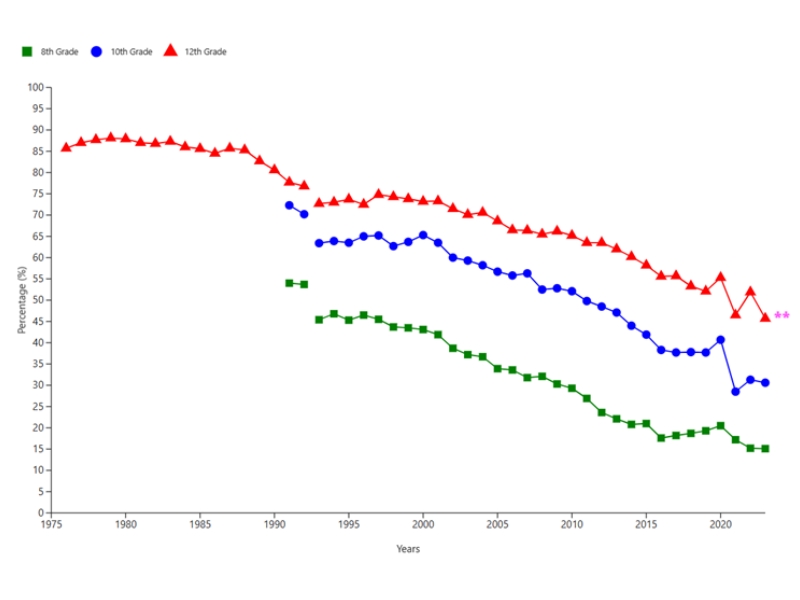A Toast to Health: Celebrating the Decline in Teenage Drinking
Teenagers may be delaying drinking, with recent research showing a decline in adolescent alcohol use across all ages.

Read Time: 2 minutes
Published:
Underage drinking may seem to be inevitable. From Ten Things I Hate About You to Euphoria, alluring party scenes are a staple of young adult media. Adolescents are bombarded with pressure to drink both offline and online. When teens decide to drink, their source of alcohol is often from their own home.
The repercussions of underage drinking extend far beyond legality. Adolescents who engage in early alcohol consumption risk impaired brain development and are susceptible to alcohol use disorder in adulthood.
Since 1975, the Monitoring the Future (MTF) study has tracked the use of alcohol, nicotine, and illicit drugs and other substances by middle and high schoolers through annual surveys. The 2023 MTF data reported by Richard A. Miech and coauthors show that alcohol use among 12th graders is lower now than before the COVID-19 pandemic.

As shown in the graph above, in 2020, the number of students who reported using alcohol in the past 12 months spiked among students in grade eight (shown in green), ten (shown in blue), and twelve (shown in red). Since then, alcohol use has dropped for all grade levels.
Alcohol consumption among high school seniors briefly returned to pre-COVID-19 levels in 2022, but fell again in 2023. The authors suggest that students who entered high school during the pandemic had delayed exposure to alcohol. These students may be less likely to use alcohol or other substances later in life.
The researchers highlight two explanations for the downward trend in teenage alcohol consumption. First, pandemic-era social isolation may have limited teens’ interactions with peers who encourage drinking. Second, isolation provided an opportunity to better identify symptoms of ADHD in adolescents. Since the pandemic, more teenagers have been receiving proper diagnoses and treatment, which may prevent them from self-medicating their ADHD with alcohol.
Underage drinking is clearly not inevitable; teens are delaying their first sips. While researchers continue to monitor trends in alcohol use, future interventions will address the social and mental drivers of teenage drinking, looking for ways to help young people make better choices.
Databyte via Richard A. Miech, Lloyd D. Johnston, Megan E. Patrick, Patrick M. O’Malley, Jerald G. Bachman. National Survey Results on Drug Use, 1975-2023: Secondary School Students. National Institute on Drug Abuse, 2023.



